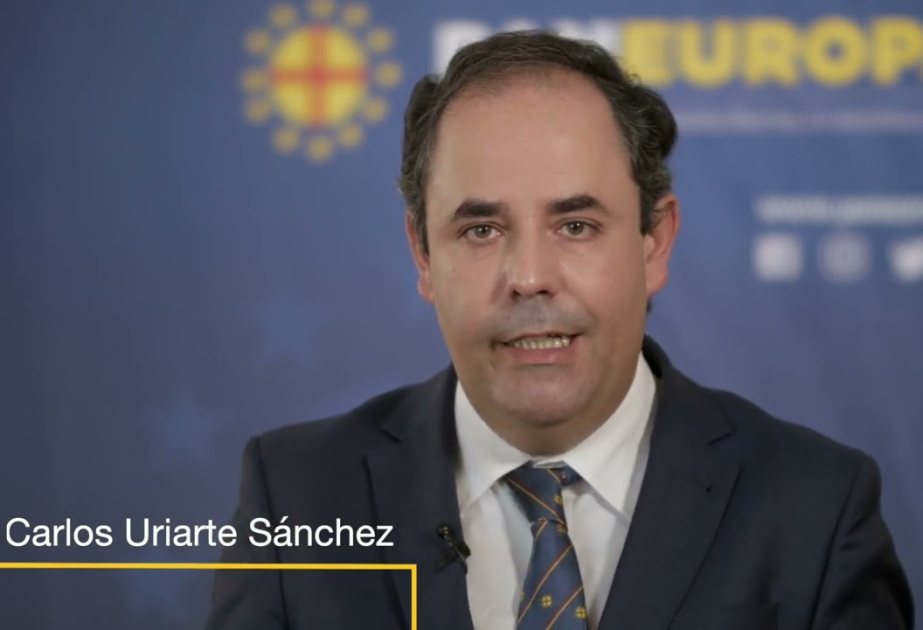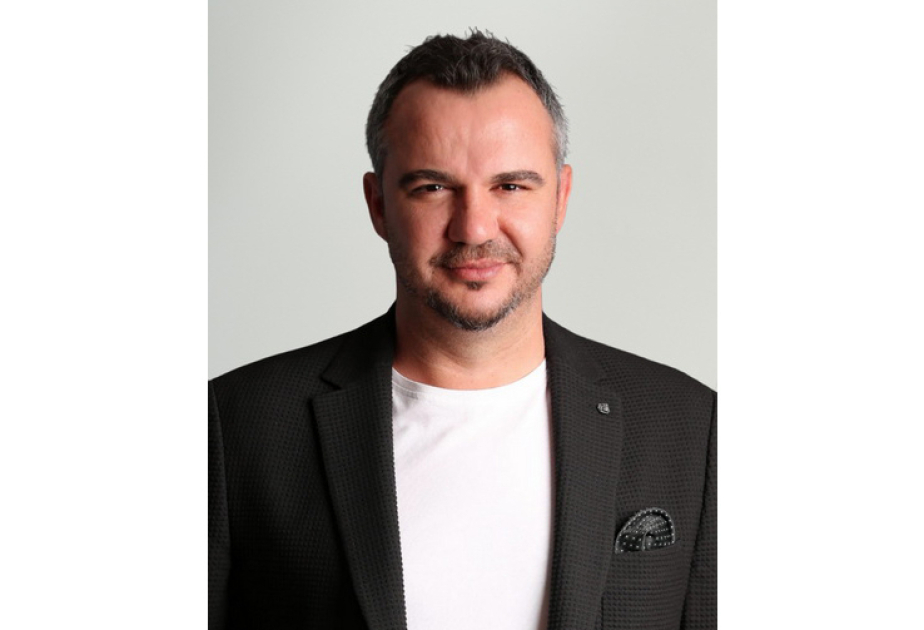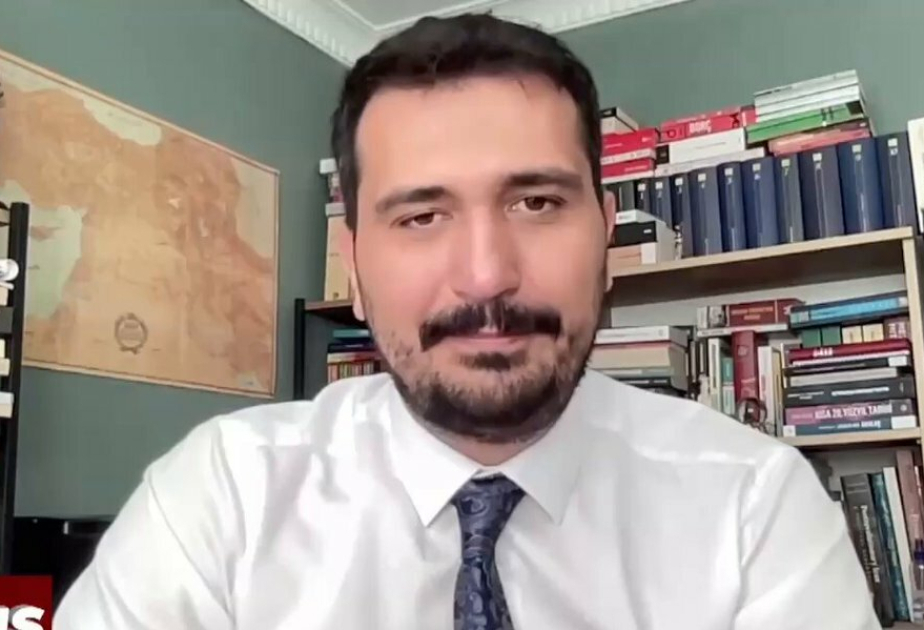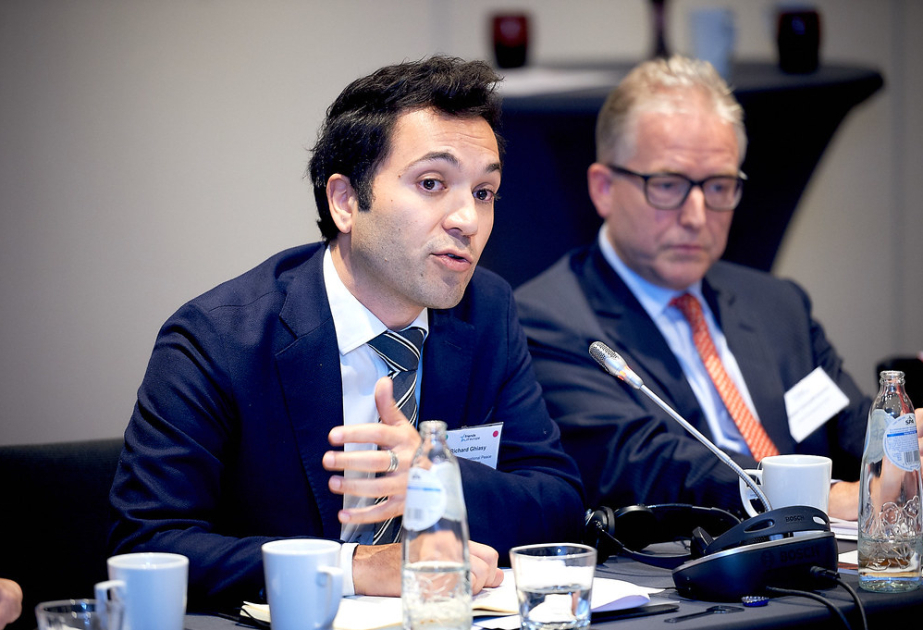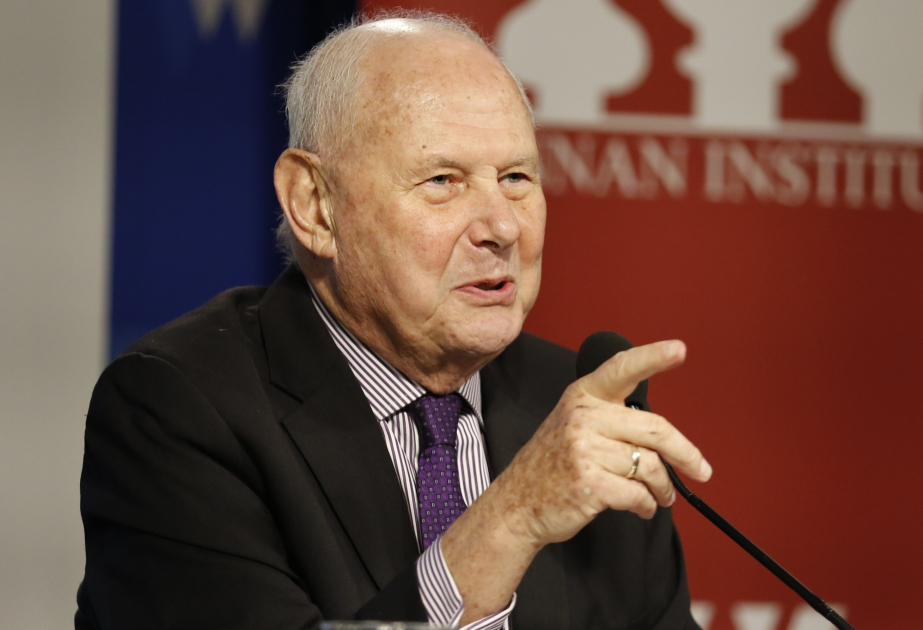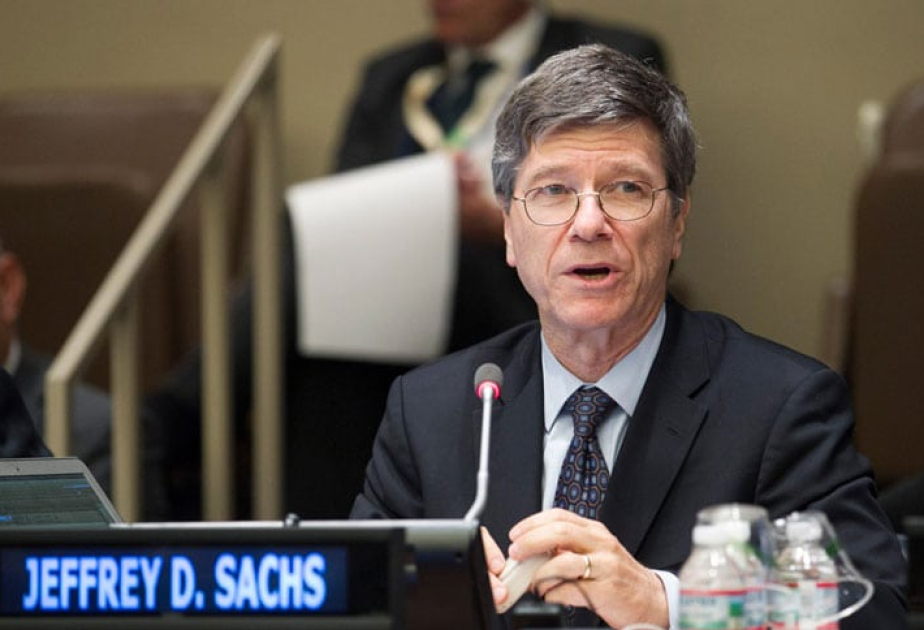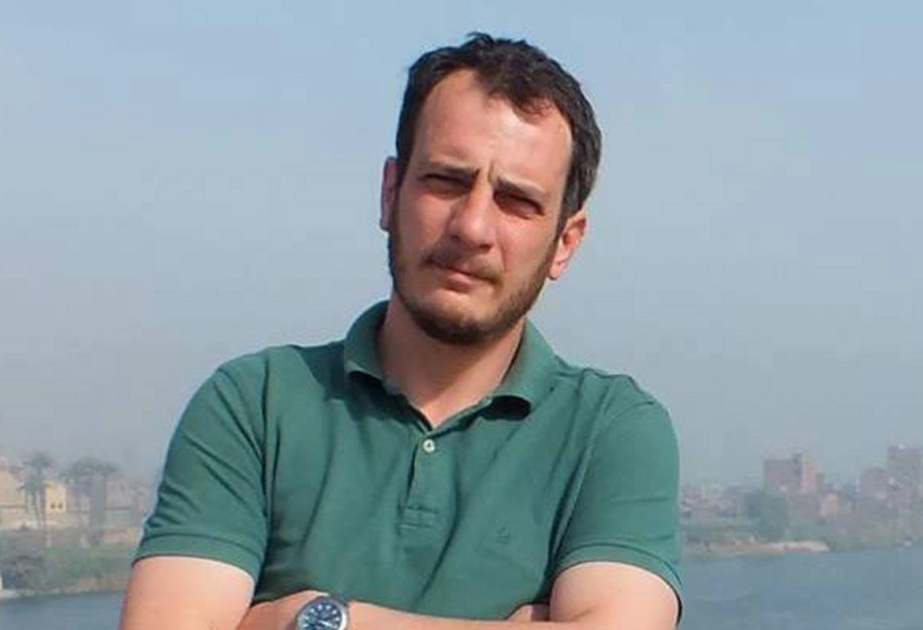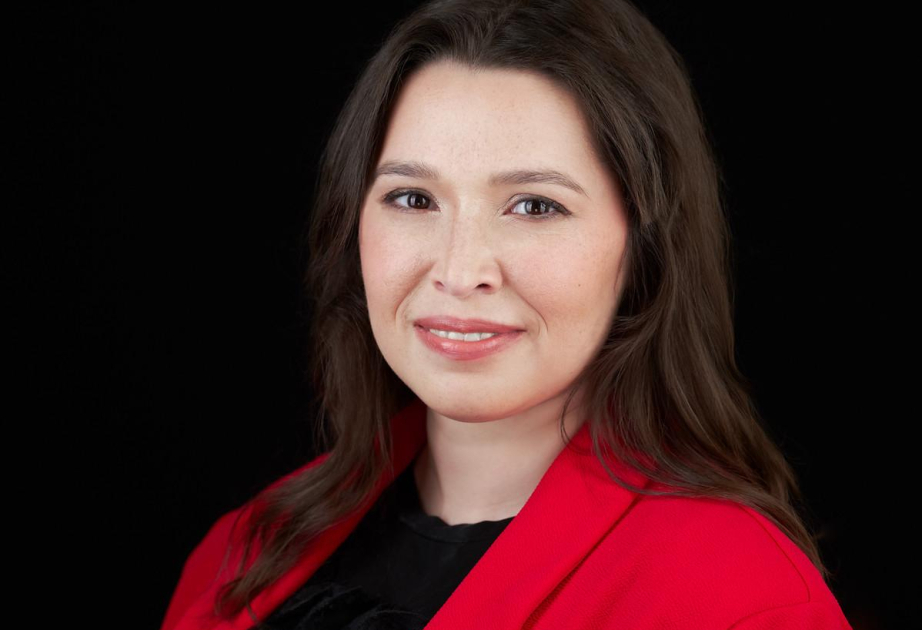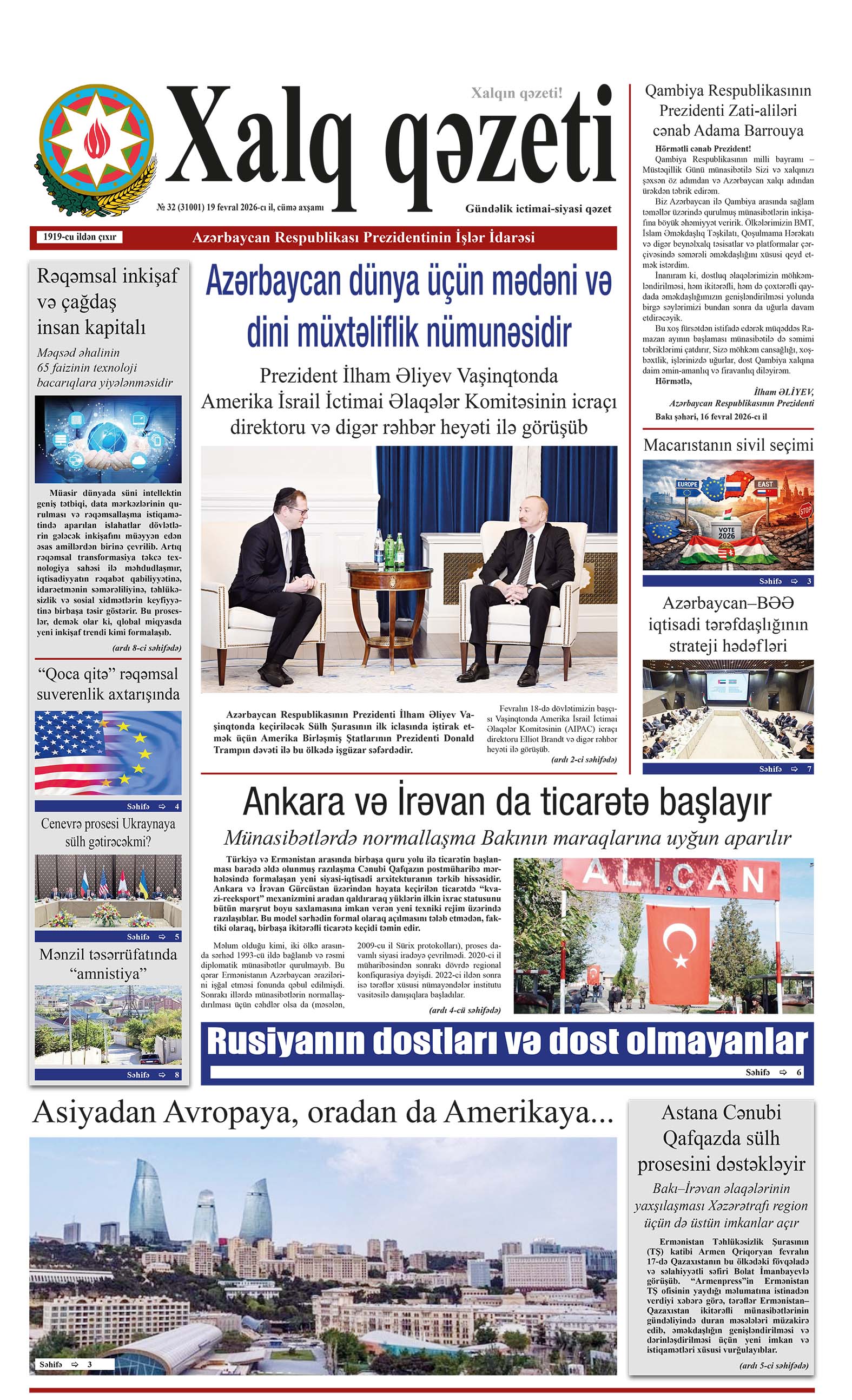AZERTAC presents an interview with Spanish expert Carlos Uriarte Sánchez, Secretary General of the Pan-European Union.
-What are the prospects for Spanish companies in projects related to the Southern Gas Corridor and transnational energy routes through the Caucasus?
- First, I would like to mention that the Southern Gas Corridor Advisory Council was established by the President of the Republic of Azerbaijan, Ilham Aliyev. Additionally, it is important to take into consideration that the Southern Gas Corridor is the longest of its kind in Europe, spanning 7 countries and covering 3,500 kilometres. Comprising the South Caucasus Pipeline (SCP), Trans-Anatolian Pipeline (TANAP), and the Trans Adriatic Pipeline (TAP), it forms a key part of the region's energy infrastructure to ensure energy supply to Europe.
In this regard, Enagás is a stakeholder in the Trans Adriatic Pipeline and is involved in this project jointly with other companies. Enagás participated last November in the COP29, which took place in Baku.
-How do you assess the current level of economic cooperation between Azerbaijan and Spain? Which sectors look the most promising for expanding cooperation?
-The trading exchanges are good but low if it was considered the great potential of our bilateral economic cooperation, it would be achieved among our two countries. The main Spanish economic sectors in Azerbaijan are those related to agri-food (Azerbaijan is modernizing its agricultural sector and is seeking specialized technology and equipment), renewable energy, infrastructure (roads, ports, airports, etc.) open up opportunities for Spanish companies, and tourism. Additionally, there are opportunities in sectors such as medical technology and the oil and gas sector.
In Spain, the main economic sectors in which Azerbaijan has a presence and interest are energy (oil and gas), infrastructure, transportation and logistics, and agri-food. There is also interest in the financial, tourism, and renewable energy sectors.
The energy sector: Azerbaijan is a major producer of oil and natural gas, and a significant portion of its exports go to Spain. Azerbaijan is boosting the production of fruits, nuts, and other agricultural products, seeking to diversify its exports and gain a more prominent role in the international market, including Spain.
– What measures could contribute to the growth of direct investment from Spain to the economy of Azerbaijan?
-To encourage more direct Spanish investments in Azerbaijan, several key steps can be taken, including strengthening the legal and regulatory environment, promoting transparency and accountability, clear and enforceable property rights guarantee, reforms to ensure independent and fair court system, and offering attractive incentives (tax preferences, subsidies and customs duty exemptions). Additionally, focusing on priority sectors like agriculture, transportation, tourism, and ICT, as identified by Azerbaijan, could yield significant results. Furthermore, information campaigns, direct engagement (organizing meetings and forums between Spanish investors and Azerbaijani government officials and business leaders can foster trust and understanding) and encouraging partnerships between Spanish companies and local businesses can facilitate knowledge transfer an create mutually beneficial relationships.
By implementing these measures, in my opinion, Azerbaijan can create a more attractive environment for Spanish investors, leading to increased FDI and contributing to the country's economic development. I know that Azerbaijan is in the correct way to transform its economy and there is a clear desire for sectoral diversification.
In this sense, President Ilham Aliyev is making strategic decisions that will ensure a prosperous future for the country, just as his father did in the past with the so-called Contract of the Century. His nonconformist and reformist spirit have turned Azerbaijan into a major power in the South Caucasus and the Trans-Caspian region.
-Spain has extensive experience in the development of renewable energy. How realistic is it to involve Spanish companies in green energy projects in Azerbaijan, especially in the liberated territories?
-Yes, involving Spanish companies in green energy projects in Azerbaijan, particularly in the liberated territories, is highly realistic due to Spain's established experience in renewable energy and Azerbaijan's growing interest in green technologies. Spain's expertise, coupled with Azerbaijan's potential for solar and wind power, presents a strong opportunity for collaborative ventures.
On the one hand, Spain has a great renewable energy expertise. Spain is a major player in the renewable energy sector, particularly in wind power. It's a leading exporter of wind turbines, with strong domestic growth in wind and solar power. Spain has also set ambitious targets for renewable energy production, aiming for 74% from renewable sources by 2030; on the other hand, the territories recently liberated from Armenian occupation offer specific opportunities for green energy projects, particularly in rural areas where infrastructures development is needed.
-Can joint ventures in agribusiness, food and light industry become growth points for bilateral partnership? How interesting is the Azerbaijani sales market and production cooperation for Spanish businesses?
-First of all, I would like to say that in relation with the first question, I know that there are joint ventures working well in agribusiness, food and light industry among Azerbaijan and other countries as Kazakhstan, Uzbekistan and Tajikistan. Those countries are closer culturally as part of the Turkish speaking community and the so called post-soviet space. Spain is more far away culturally and historically from Azerbaijan than countries from Central Asia. However, Spain has a strong and well-developed agribusiness, food and light industry that it´s well known in all the world.
Secondly, answering the second question: the Azerbaijani sales market and production cooperation hold considerable interest for Spanish businesses due to Azerbaijan's strategic location, ongoing economic development, and increasing investment in infrastructure. Azerbaijan is seen as a bridge between Europe and Asia, offering access to a growing regional market. Furthermore, the two countries are actively strengthening their economic partnership through initiatives like a memorandum of understanding, fostering greater cooperation between businesses, particularly SMEs.
Both Azerbaijan and Spain are actively promoting economic cooperation, with initiatives like the Economic Dialogue and the Memorandum of Understanding aimed at facilitating trade and investment.
Finally, Azerbaijan's growing economic ties with Central Asian countries offer further opportunities for Spanish companies to expand their reach beyond the Azerbaijani market.
-What role can Spain play as a "bridge" between Azerbaijan and the EU in terms of trade and economic integration and access to European markets?
-Spain can serve as a key "bridge" for Azerbaijan's economic integration with the EU, facilitating trade and investment by leveraging its geographic proximity, strong EU ties, and established business relationships. Spain's role is multi-faceted, encompassing trade facilitation (eliminating trade barriers, promoting bilateral trade agreements between Azerbaijan and the EU, streamlining trade processes and reducing costs), investment promotion (connecting businesses, attracting foreign investments, providing financial support), and cultural and educational exchange (promoting mutual understanding, sharing expertise and strengthening human capital). Spain can also act as a bridge between Azerbaijan, Latin America, and North Africa.
-How do you assess the role of Azerbaijan as a logistics hub at the intersection of East and West?
-First, Azerbaijan is strategically positioned as a major logistics hub at the intersection of East and West due to its geographical location and significant investments in infrastructure, particularly in the Middle Corridor. This corridor facilitates trade and transit between Asia, Europe, and beyond, with Azerbaijan playing a central role in connecting these regions.
Azerbaijan has invested heavily in its transport infrastructure, including the Baku-Tbilisi-Kars railway, the Baku International Trade Seaport, and expanded air cargo facilities at Heydar Aliyev International Airport in Baku, enhancing its capacity to handle transit cargo. Besides, the Alat Free Economic Zone further reinforces Azerbaijan's position in Europe-Asia logistics chains, creating a favorable environment for businesses involved in transit trade. Different transport options are offered due to investments in road, port, and rail infrastructure.
-What opportunities are opening for Spanish business in connection with the development of transport corridors, including the Zangezur route and the Middle corridor?
-The development of transport corridors like the Zangezur route and the Middle corridor presents significant opportunities for Spanish businesses, primarily in logistics, infrastructure, and trade facilitation. These routes connect Asia and Europe, offering shorter transit times and potential for increased trade and investment.
To sum up, the development of these transport corridors presents a promising landscape for Spanish businesses seeking to expand their operations and capitalize on growing trade and investment opportunities in the region. Spanish expertise in logistics, infrastructure, and trade facilitation can play a crucial role in realizing the full potential of these routes, contributing to economic growth and regional connectivity.


